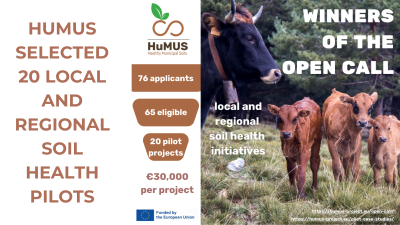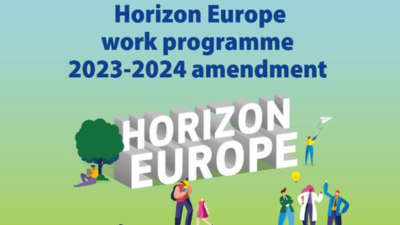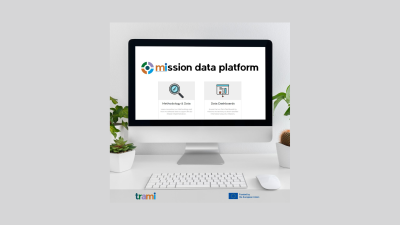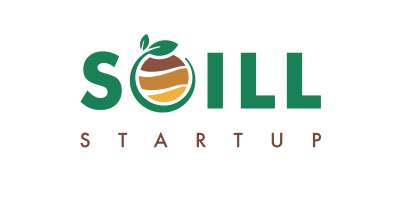Mission: A Soil Deal for Europe
One of the five EU Mission is Mission: A Soil Deal for Europe, which aims to establish 100 living labs and lighthouses to lead the transition towards healthy soils by 2030. As the Mission Board points out in its interim report, soil is a fragile resource that takes a long time to renew which makes the challenge of restoring and promoting soil health a priority.
Mission: A Soil Deal for Europe, will create a shared research and innovation vision that will accelerate Europe's trajectory towards sustainable soil management and restoration as part of a wider, green transition in rural and urban areas. The mission aims to create 100 living labs and lighthouses to lead the transition towards healthy soils by 2030, where soil health is defined as 'the continued capacity of soils to support ecosystem services,' according to the Implementation Plan published in September 2021.
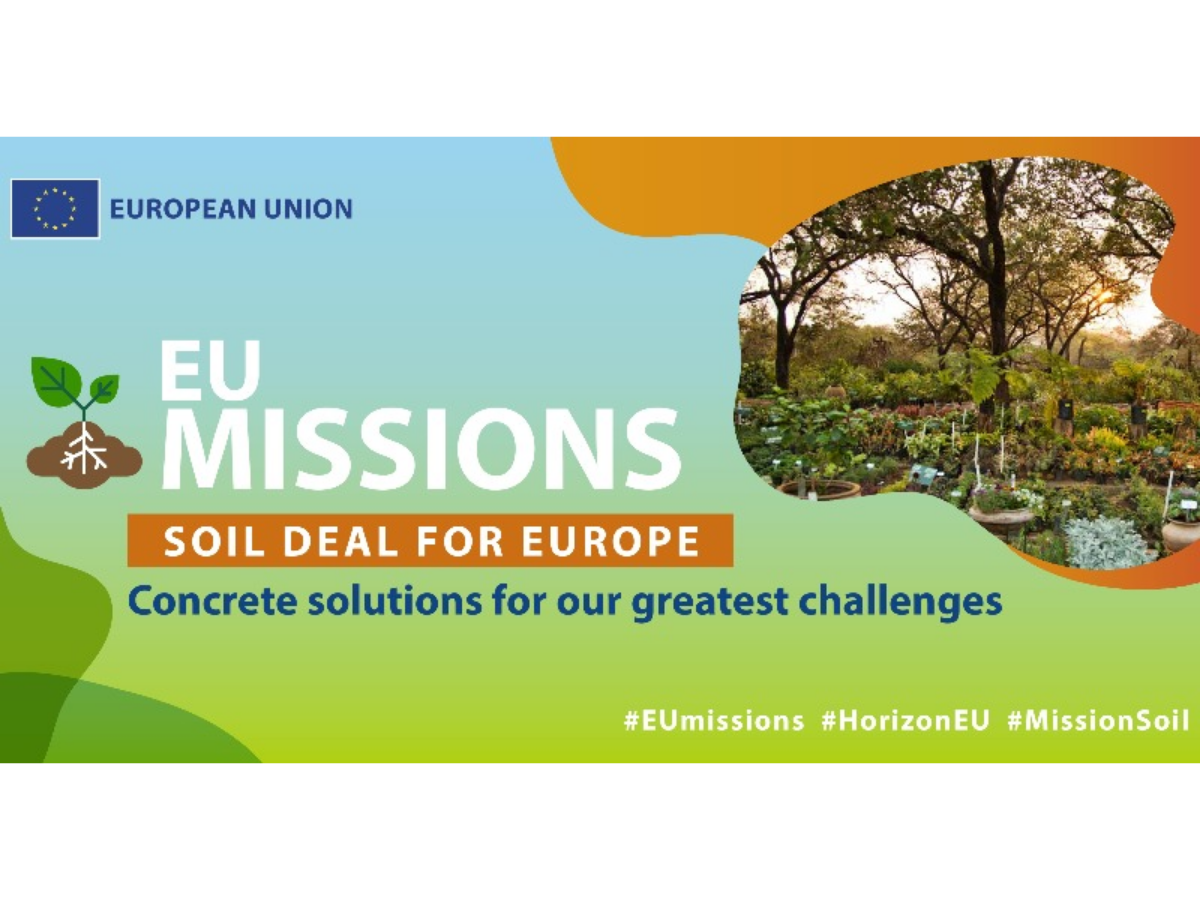
Mission objectives
There are eight specific objectives to the Mission, each comes with a series of measurable goals to be achieved:
- Reduce land degradation
- Conserve and increase soil organic carbon stocks
- No net soil sealing and increase the reuse of urban soils
- Reduce soil pollution and enhance restoration
- Prevent erosion
- Improve soil structure
- Reduce the EU global footprint on soils
- Increase soil literacy in Member States.
ERRIN input to Mission: A Soil Deal for Europe
To maximise the impact of the Mission, research activities will be adapted to local and regional conditions. Knowledge will be co-created in living labs that will address specific needs for soil health. These living lands will form regional clusters with the objective to spur co-innovation at both landscape and watershed levels.
The mission also aims to focus on mobilising and creating an enabling environment for sustainable soil management throughout the EU looking at public policies, investments, citizen engagement, and information campaigns, where the regional and local levels are crucial to achieve long-lasting impact. The activities carried out within the mission will also have clear links to regional and urban climate adaptation policies and actions.
2021
In February 2021, ERRIN's Bioeconomy Working Group organised an information session on the Mission, during which members took a particular interest in the development of the lighthouse demonstrators. After the publication of the Implementation Plan in autumn 2021, a follow-up meeting was organised in November 2021 to discuss the role of regions in the Mission.
2022
In March 2022, an information session was set up in which ERRIN members exchanged ongoing soil activities and projects in the regions, while also exploring links between the Mission and the EU Soil Strategy. In May 2022, ERRIN shared its key messages for the Horizon Europe Missions Work Programme 2023, in which the network highlighted the need for calls encouraging public sector innovation, the need for synergies between the Soil Mission and other Missions, and the need for support to develop grass-root level tools and services.
2023
The Bioeconomy Working Group continued the policy dialogue with the Mission Soil Secretariat and focused its work on the Mission Soil Manifesto, informing members of the open opportunities for implementing the Mission on the ground. In February, ERRIN contributed to the Horizon 2014-2027 consultation. ERRIN’s input document was co-created with its members. In April, ERRIN announced its participation in the ‘SOILL - Support Structure for SOIL Living Labs’ project which is currently in the Grant Agreement Preparation stage and set to commence in January 2024. In April, the European Commission and ERRIN launched the Mission Soil Manifesto. On this occasion, ERRIN was the first stakeholder to sign the Manifesto. In May, ERRIN organised a project development session on the Mission Soil calls 2023. This informal meeting served as a valuable platform for members to engage in discussions and foster potential consortia. In November ERRIN co-organised the EU Soil Day, promoting a discussion on the territorial aspects of soil health. During the European Mission Soil Week, ERRIN Bioeconomy WG leaders joined the panel discussion on ‘The Mission's regional and local dimension’, bringing the voice of local and regional authorities and highlighting the crucial role of the regions in connecting stakeholders, engaging citizens and fostering dialogue on soil health.
